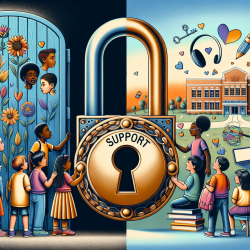Introduction
Trauma is a pervasive issue that impacts individuals, families, and communities worldwide. The research paper "Prevention and Public Health Approaches to Trauma and Traumatic Stress: A Rationale and a Call to Action" by Magruder et al. (2016) emphasizes the importance of adopting a public health perspective to address trauma. This approach not only focuses on individual treatment but also on prevention and early intervention strategies at multiple societal levels. In this blog, we will explore how practitioners, especially those working in schools, can implement these strategies to improve outcomes for children.
The Public Health Approach to Trauma
The public health approach to trauma involves understanding trauma's impact across different levels: individual, relationship, community, and societal. This perspective allows for the development of prevention strategies and early interventions that can mitigate the effects of trauma before they become chronic issues.
- Individual Level: Educating students about trauma and its effects can help in early identification and intervention.
- Relationship Level: Encouraging supportive peer and family relationships can prevent trauma from escalating.
- Community Level: Schools can serve as hubs for trauma-informed care, providing resources and support to students and families.
- Societal Level: Advocating for policies that support mental health and trauma prevention can have a broad impact.
Implementing Trauma-Informed Practices in Schools
Schools are uniquely positioned to implement trauma-informed practices that can significantly impact children's mental health. Here are some strategies based on the public health approach:
- Training Educators: Provide training for teachers and staff on recognizing signs of trauma and implementing supportive interventions.
- Creating Safe Environments: Ensure that the school environment is safe and supportive, reducing triggers for trauma-exposed students.
- Integrating Support Services: Collaborate with mental health professionals to offer counseling and support services within the school.
- Promoting Resilience: Incorporate social-emotional learning (SEL) programs that teach coping skills and resilience.
Encouraging Further Research and Action
Practitioners are encouraged to delve deeper into the public health approach to trauma. By understanding and applying these strategies, they can contribute to a broader societal impact. Further research can help refine these approaches and develop new interventions tailored to specific community needs.
To read the original research paper, please follow this link: Prevention and public health approaches to trauma and traumatic stress: a rationale and a call to action.










